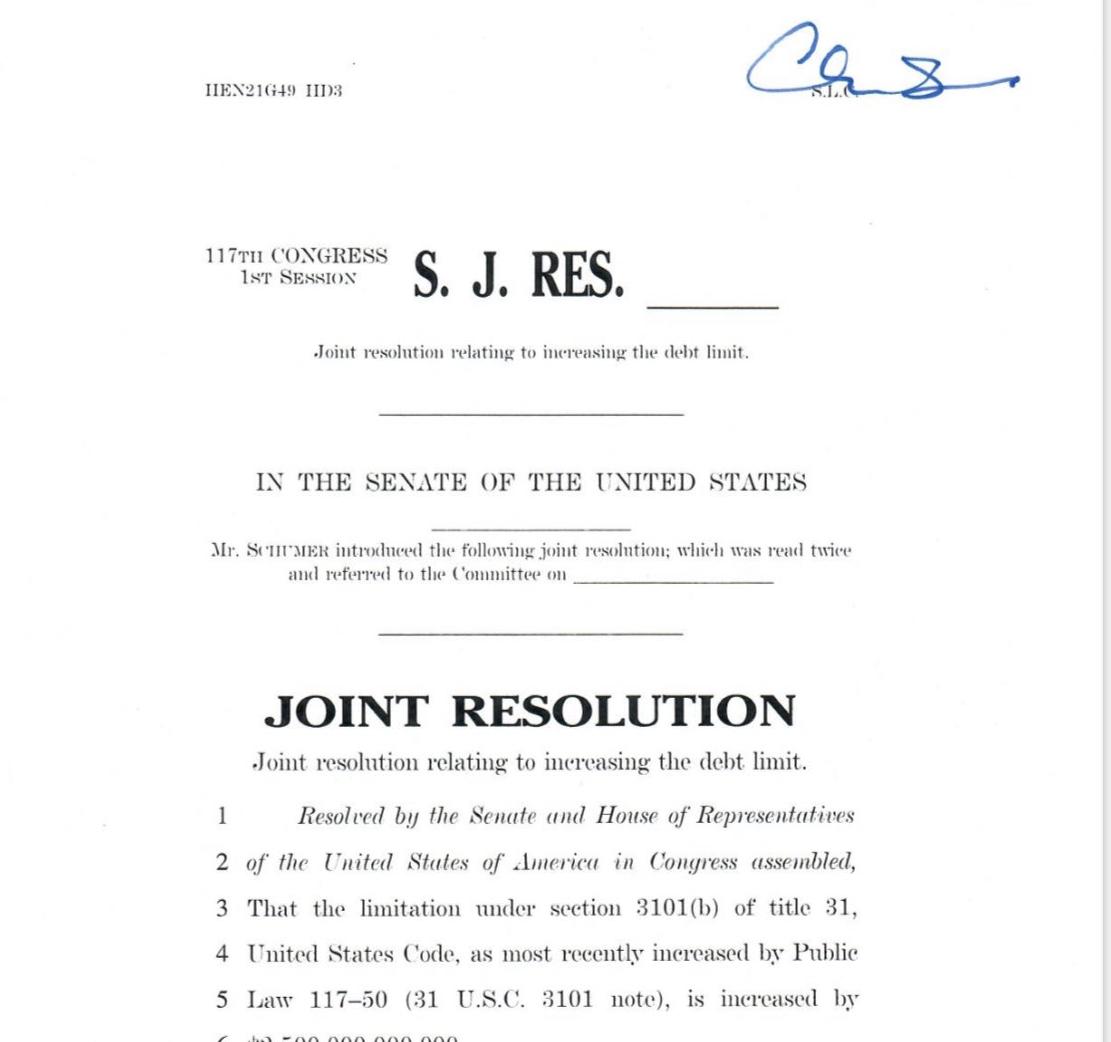The "death period" that U.S. Treasury Secretary Yellen called is coming!
Yellen has repeatedly warned that the government could reach its debt ceiling after Dec. 15 and that difficulties in meeting its debt-servicing obligations could trigger a sovereign default. She also warned that the U.S. would fall into recession if Congress did not raise the debt ceiling before the Treasury Department defaulted.
On Tuesday, December 14, EST, U.S. Senate Democrats proposed a bill to raise the debt ceiling by $2.5 trillion, a move that would extend the government's borrowing authority until early 2023.

Just a day before yellen's warning date, the Senate passed the bill to raise the $2.5 trillion debt ceiling late on the 14th, which is currently being transferred to the House of Representatives and is expected to be approved by a slim majority of Democrats and expected to send it to Biden's desk to sign the bill later today or early Wednesday.
U.S. Senate Majority Leader Chuck Schumer said in the Senate that Democrats would raise the debt limit to "a level commensurate with the funding needed to get into 2023," while also saying:
The American people can rest assured that the government will not default on its debts.
On Tuesday, the U.S. bipartisan efforts reached a solution to resolve the debt ceiling: linking the debt limit to a bill designed to prevent automatic cuts in Medicare spending at the end of the year. Lawmakers will pass a provision in the health care bill that would allow the Senate to raise the debt ceiling once with a simple majority vote.
On December 9, the U.S. Senate passed a bill to speed up the debt ceiling by a vote of 64 to 36, further reducing the risk of a government shutdown.
Bloomberg commented that Democrats could technically raise the debt ceiling to any amount, while Republicans would be powerless to stop it from passing. Some progressive legislators argue that a high debt ceiling amount renders the debt ceiling meaningless.
It should be noted that the passage of the bill sets the stage for another bipartisan game over the debt ceiling as soon as November 2022. In next year's midterm elections, if Democrats lose a majority, they may try to raise the cap again to avoid Republicans threatening to cut spending when they take over.
CNBC argues that "raising the debt limit does not authorize new government spending" is similar to raising the credit card borrowing limit for consumers, providing support for the Treasury to continue to pay the country's bills.
This article is from Wall Street Insights, welcome to download the APP to see more